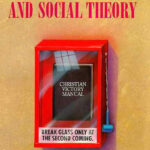
The Greatness of the Great Commission
Written by Kenneth L Gentry
“Save Souls, Not Cultures!”
This has been the motto of twentieth-century evangelism. Having encountered heavy resistance to the prophet’s message of comprehensive revival and restoration in history, modern evangelical Christianity has abandoned the prophets. Unlike Jonah, who grew weary of life in the belly of a whale, modern evangelicalism has not only grown accustomed to the Church’s cultural irrelevance today, it has actually proclaimed this pathetic condition as God’s plan for the “Church Age.” But is it? Not according to Jesus’ instructions to His Church: the discipline (putting under God’s discipline) of all nations.
Go ye therefore, and teach all nations, baptizing them in the name of the Father, and of the Son, and of the Holy Ghost: Teaching them to observe all things whatsoever I have commanded you: and, lo, I am with you alway, even unto the end of the world. Amen (Matthew 28:19-20).
Paul makes it clear that the progressive expansion of Jesus’ kingdom in history will continue until all things are under His dominion, on earth, before He returns physically to judge the world. “For he must reign, till he hath put all enemies under his feet. The last enemy that shall be destroyed is death” (I Corinthians 15-25-26). This was David’s message, too:
The Lord said unto my Lord, Sit thou at my right hand, until I make thine enemies thy footstool. The Lord shall send the rod of thy strength out of Zion: rule thou in the midst of thine enemies
(Psalm 110:1-2)
In The Greatness of the Great Commission, Rev. Kenneth L. Gentry, Jr. presents a comprehensive biblical case for God’s comprehensive salvation and restoration in history. Sin is comprehensive; God’s healing grace is no less comprehensive. Whenever sin reigns today, there God speaks to sinful man and offers a way of escape. “There hath no temptation taken you but such as is common to man: but God is faithful, who will not suffer you to be tempted above that ye are able; but will with the temptation also make a way to escape, that ye may be able to bear it” (I Corinthians 10:13). To argue that the Great Commission does not include every aspect of today’s cultures – all of Satan’s kingdom – is to argue that there is no way of escape in many areas of life.
The war between God’s kingdom (civilization) on earth and Satan’s kingdom (civilization) on earth is total, encompassing every aspect of life. The Great Commission calls the Church (in this “Church Age”) to make a full-scale attack on modern humanist civilization, but always in terms of a positive message and practical program: a better way of life in every area of life. This is the greatness of the Great Commission. It must not be narrowed to exclude culture from God’s special grace.

Chapter 26
Chapter 26
Written by Gary North
How Much Time?
“Aim high, aim carefully, and shoot long.”

Foundations of Reconstruction Essays #8
Foundations of Reconstruction Essays #8
Written by
National Judgment & Repentance (1:01 – 12:29)
Spiritual Warfare (12:31 – 24:03)
Eschatology & American History (24:05 – 32:01)
Brought to you by the folks at Foundations of Reconstruction.

Chapter 22: The Foundations of Social Order
Chapter 22: The Foundations of Social Order
Written by R.J. Rushdoony

022: American Productivity
022: American Productivity
Written by

Chapter 23: The Nameless King
Chapter 23: The Nameless King
Written by R.J. Rushdoony

023: Why Does the United States Have Such a High Prison Population?
023: Why Does the United States Have Such a High Prison Population?
Written by
Charles Roberts and Andrea Schwartz discuss the American prison system in Episode #23 of the Out of the Question Podcast.

18: Abortion and Planned Parenthood
18: Abortion and Planned Parenthood
Written by
This week we decided to chat on the topic of abortion, due to the recent focus on Planned Parenthood in the news.
- Gary North’s letter to Paul Hill (abortion doctor killer)

Millennialism and Social Theory
Written by Gary North
Herman Cartoon
Person holding a sign that says: The End Is Near
Man in Business Suit says: “Have I got time for a cup of coffee?”
This is one of those pictures that really is worth ten thousand words. It summarized this book’s thesis: the cultural bankruptcy of modern evangelicalism and its chief cause, the doctrine of Christ’s momentary return.
Modern evangelicalism is like that fellow with the sign, and modern humanistic society takes its message just about as seriously as Herman does. A movement that believes the message of that sign is not going to produce a comprehensive challenge that is meaningful or even plausible to the Hermans of this world. Christianity cannot beat something with nothing. People who think they have time only for a cup of coffee and reading a gospel tract have nothing much to offer a civilization in crisis.
This does not mean that those holding the sign have no social theory. They do: a theory that they have not developed. They believe in a view of the world that has been developed in terms of philosophies other than the Bible’s. They have imported alien philosophies into Christianity. To the extent that they attempt to challenge modern man intellectually, they are using defective tools.
This present the case for the Bible as the sole foundation of valid social theory. Every social theory has a theory of sovereignty, authority, law, rewards and punishments, and cultural progress over time. The Bible offers a unique version of such theory. But modern Christians have rejected the idea of cultural progress. They also reject the idea of God’s sanctions in history. Finally, they reject biblical law. They have therefore been forced to import humanistic substitutes for these three crucial concepts. Very few of them have recognized what they have done, or have had done to them, in the name of Christianity. This book show exactly what has been done, and why it has distorted the Church’s efforts of evangelism.

Part V: The Duration – Chapter 25
Part V: The Duration – Chapter 25
Written by Gary North
Optimistic Corpses
“There is hope for the kingdom of God on earth, precisely because there is no hope for God’s people to escape the sting of death.”
